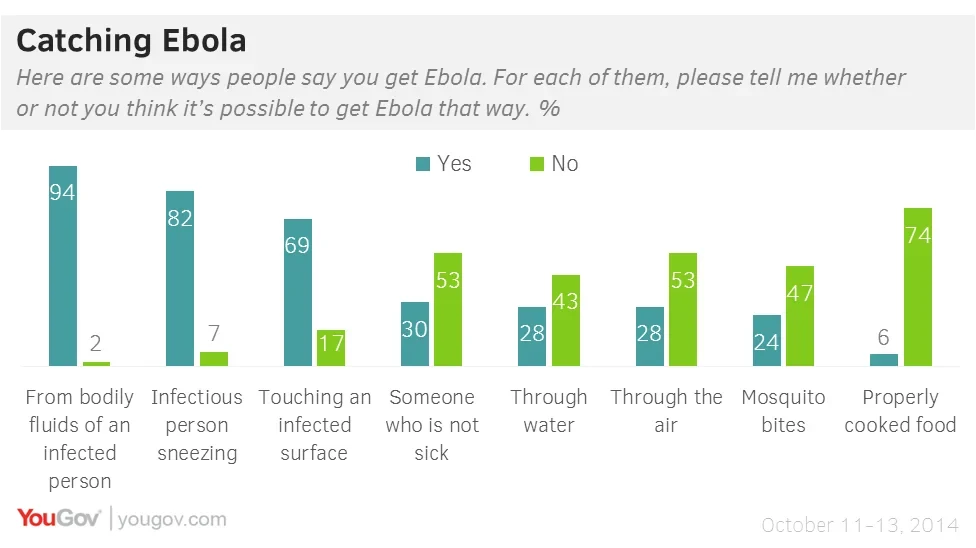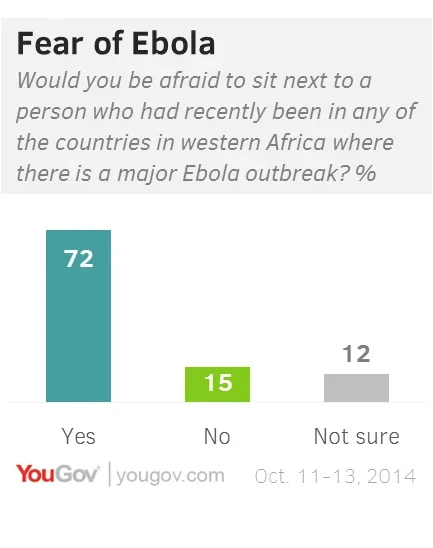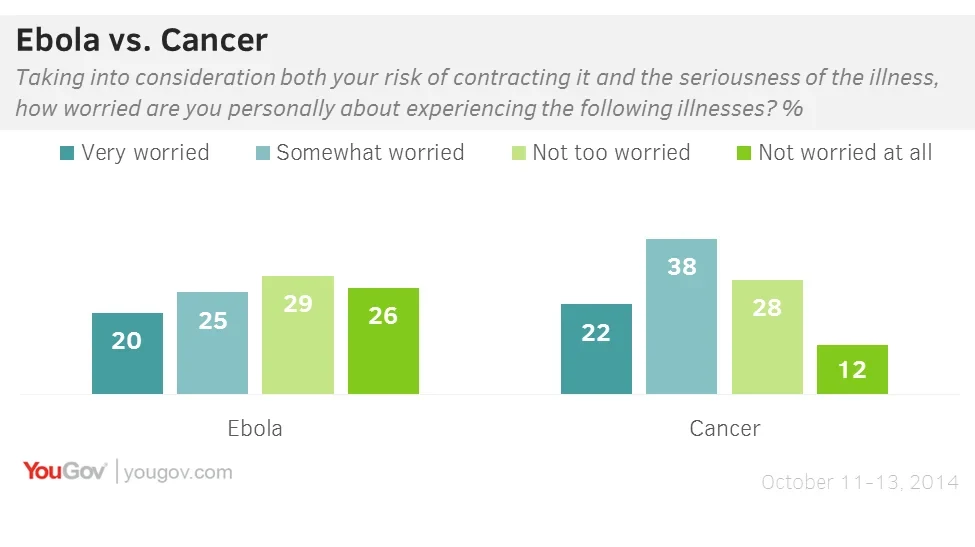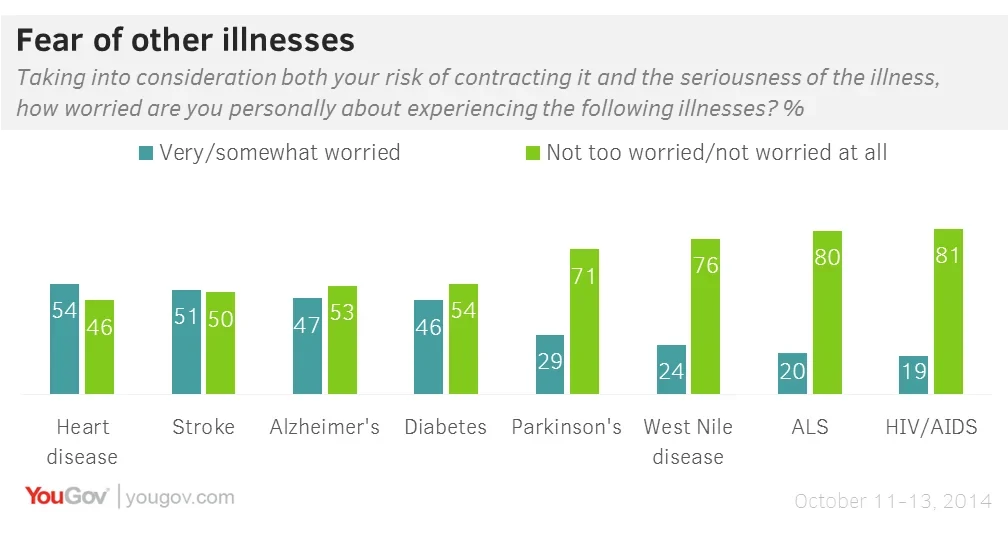A fifth of Americans are 'very worried' about personally contracting Ebola, and some harbor misconceptions about how Ebola is spread
Americans learn quickly about how diseases are spread – but many harbor misconceptions. In late 1985, in the early years of HIV/AIDS, more than 90% of Americans knew it could be spread by unprotected sex, blood transfusions and used needles. But some Americans in CBS News Polls also thought that a person could contract AIDS from toilet seats (28%), or from working in the same office (12%).
Today, more than nine in ten Americans in the latest Economist/YouGov Poll know that one can contract Ebola through a transfer of bodily fluids. Two out of three know that an infected surface can transmit the virus (the poll was conducted after a nurse treating the country’s first diagnosed case in a Dallas Hospital probably was infected by transfer from her protective suit). But there are many who – as was the case 20 years ago – believe there are other ways they can get sick.

According to the Centers for Disease Control, Ebola is not spread by air or water, yet more than one in four Americans think it is. Sneezing is not something that accompanies Ebola, and most experts don’t believe that a sneeze would transmit it, but more than eight in ten Americans think it would. In January, 1986, NBC News and the Wall St. Journal found that 32% believed HIV/AIDS could be contracted from a sneeze.

According to the CDC, there is no evidence that mosquitoes transmit the virus. But 24% of the public believes they do. In 1993, a CBS News/New York Times Poll found 18% thinking HIV/AIDS could be transmitted by a mosquito.
Those who say they are very knowledgeable about Ebola give similar responses.
These misconceptions contribute to fear of Ebola. 70% of Americans are at least somewhat concerned it will become an epidemic; 30% are very concerned that will happen. And the belief that casual contact can spread the virus contributes to Americans’ fear about those who come from places where the virus prevalent. Nearly three-quarters of the public admit they would be afraid to sit next to someone who had recently been in a West African country that had an outbreak.
79% of women admit they would be afraid to sit next to such a person; 66% of men would be concerned.
In fact, one in five Americans are personally very worried that they might get Ebola. That percentage is second only to cancer as a perceived threat: 22% are very worried about that.

However, more than half say they are not too worried or not worried at all about Ebola striking them, higher than the percentage with little or no concern about cancer. Older adults are less worried than younger adults. 37% of African-Americans say they are personally very worried, more than twice the percentage of whites who are especially worried.
As they look at a host of other health issues, half the public has at least some concern about heart disease and stroke affecting them. Nearly as many worry about Alzheimer’s and diabetes. Younger adults are particularly worried about both of those diseases. As for HIV/AIDS, just one in ten say they are very worried about contracting that. But like Alzheimer’s and diabetes, that is especially a concern for the young.

Full results can be found here.
Economist/YouGov poll archives can be found here.







